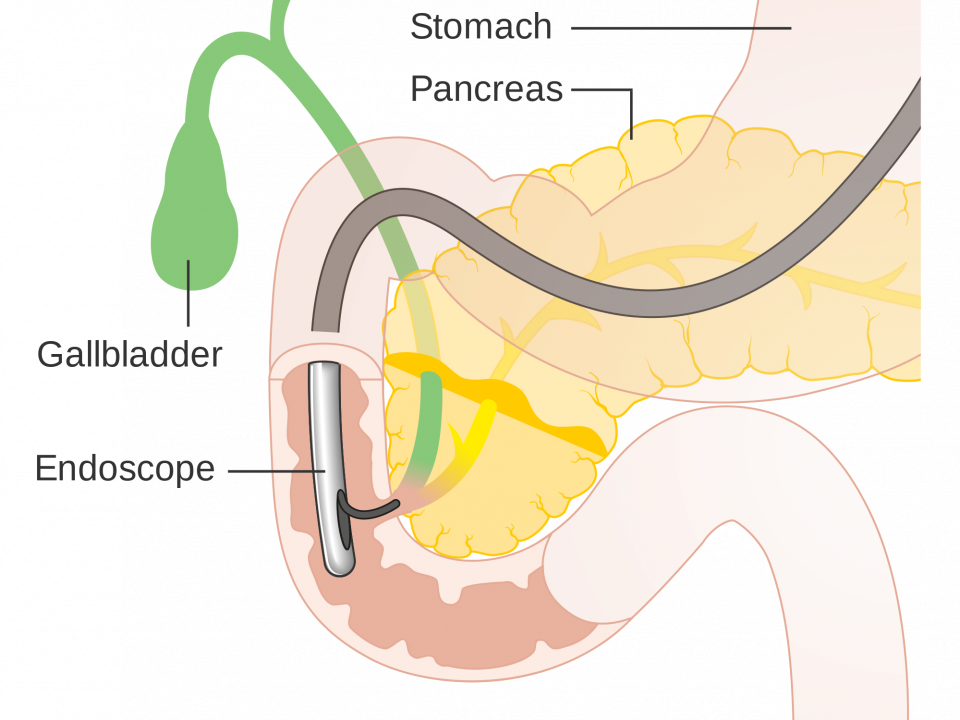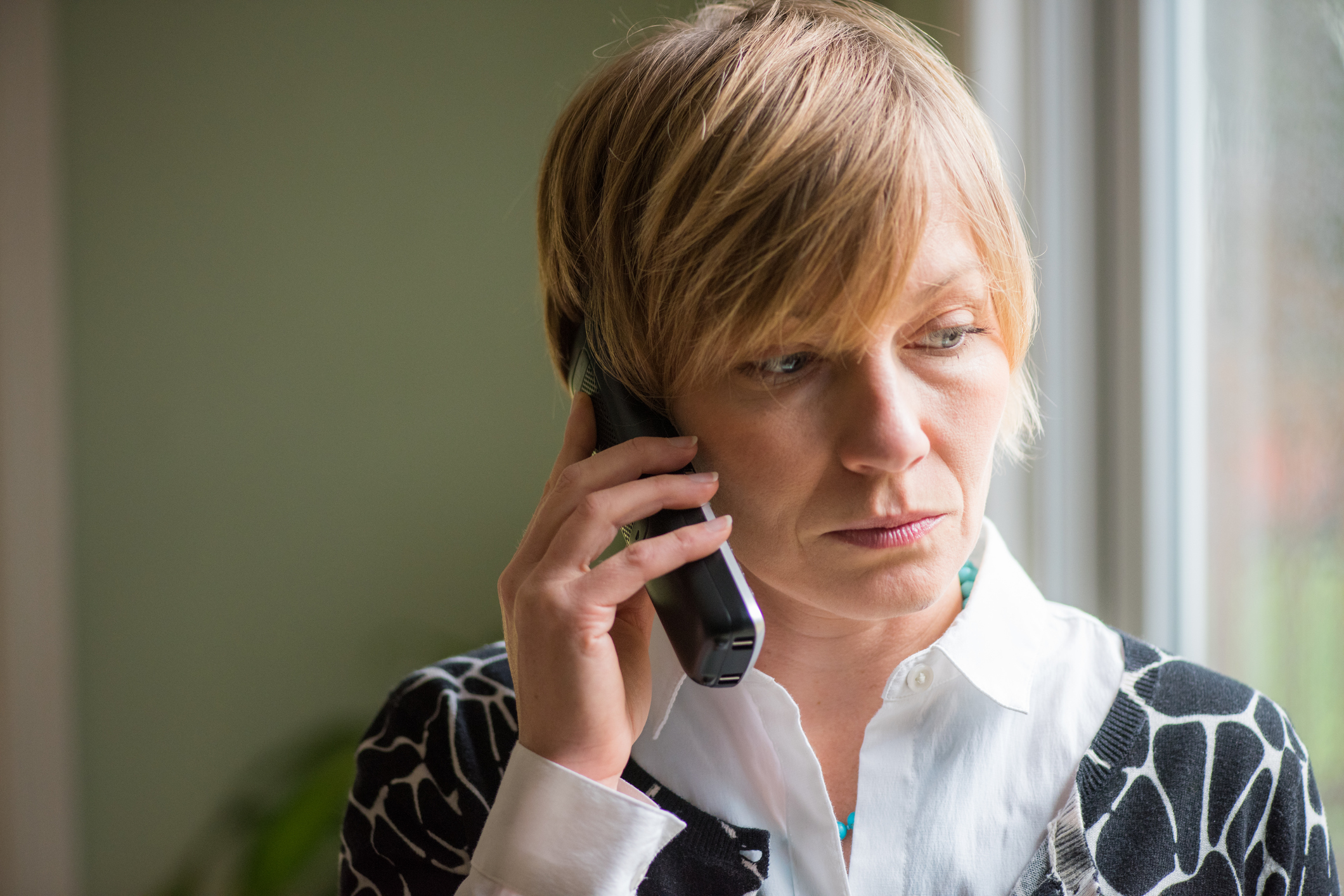Once the sedation wears off (about an hour), you can go home. Make sure you arrange for someone to take you home as you’re not allowed to drive for 24 hours after a sedative. Your throat might be a bit sore afterwards.
Endoscopic retrograde cholangiopancreatography (ERCP)
This test can be used to examine your gallbladder, bile duct and pancreas using a camera on the end of a thin tube, which is passed into your body through your mouth.

Image courtesy of CRUK / Wikimedia Commons
Before the test
You cannot eat or drink for a few hours before an ERCP.
You will be given a sedative through a vein in your arm to relax you, and local anaesthetic will be sprayed onto your throat to numb the area. This helps to make you more comfortable when having the test. You will probably have a mouthpiece between your teeth to keep your mouth open.
During the test
Your doctor passes a thin, flexible tube through your mouth and down into your stomach. It has a light and a camera on one end. This lets your doctor look at your bile duct and check for anything unusual or abnormal. They can also inject a dye into your bile duct and check for blockages on an X-ray. Your doctor may also be able to take samples of the cancer (biopsy). These can then be examined in a laboratory. If the cancer is blocking the bile duct, it may be possible to unblock the duct at this stage with a stent (a small hollow tube that can be placed inside the duct to keep it open).
The sedative and throat spray should stop you from feeling any discomfort.
How long does it last?
From 20 minutes to an hour.
After the test
Related links



Talk to a Cancer Nurse

Support Line
Our Daffodil Centres

